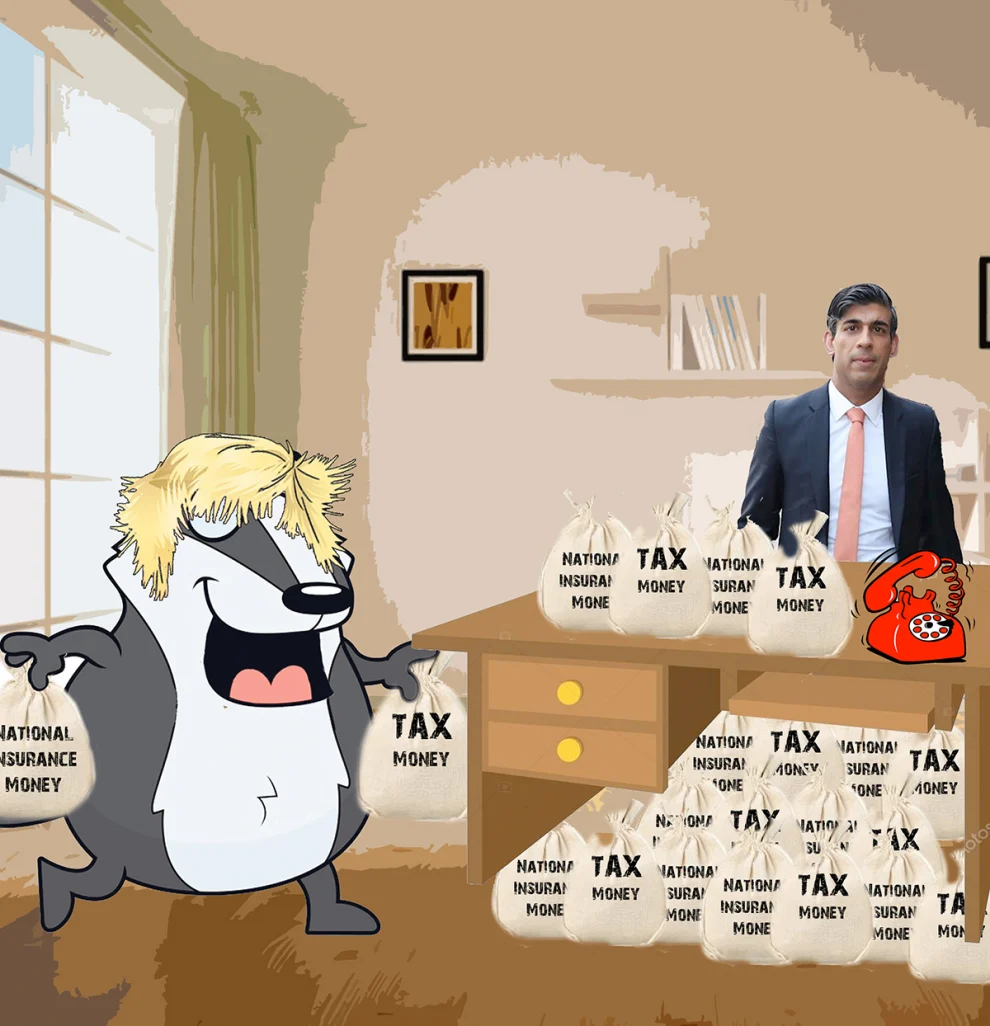SHOULD the young pay for choices made by the older generation, or should the older generation have to fork out for them from their own resources?
In every election since 1979, the UK has voted in a government that has either promised to cut taxes on income or not increase them. At the same time, expectations of and demands upon public services have risen.
To resolve the quandary competing wants represent, governments – whether Labour or Conservative – have fallen back on the same sort of ruses, all of which represent little more than fiddling around the edges of the problem.
Firstly, changing the taxation’s margins – for example, the amount of income exempted from income tax and adjusting the National Insurance threshold.
Secondly, adjusting taxes on consumption – for example, Excise duties and VAT.
Thirdly, adjusting taxes on capital – for example, Capital Gains Tax and Inheritance Tax.
Fourthly, levies on transactions involving services – for example, Insurance Premium Tax.
The fundamental problem with reducing direct taxation – or promising not to increase it – is that any government can be overtaken by events beyond its control.
And direct taxation is the easiest and most effective way of raising more money.
Underlying all considerations about tax from the perspective of consumer-driven Conservatism is the fallacy that a government budget is the same as a household budget and that, with more money in their own pockets, individuals will both act as wealth generators by buying more things and also make rational choices about what to do if they have more money in their pockets.
As economic propositions go, it’s right up there in the pantheon of lunacy with trickle-down economics.
Both underestimate human selfishness as a driver of human behaviour.
We can see the consequences of taxation held at an artificially low level in Pembrokeshire.
For years, voters elected a combination of councillors committed to holding down Council Tax. Their choices resulted in poorer public services in exchange for keeping more of their own money.
The effects of that problem are still felt today.
The Welsh Government’s funding formula provides less money to Pembrokeshire than it thinks Pembrokeshire needs.
That result was a conscious choice made by councillors in the name of lower taxes by those who waited for the deluge before fixing the roof.
Of those who believed funding would increase ever after or – Micawber-like – something would turn up.
But what did Council Taxpayers do with the money they kept?
Did they invest it in the costs of their future social care?
Did they hell as like.
The critical part of the phrase ‘disposable income’ is the fact it’s disposable.
New and current Council Taxpayers are footing the bill for that generation’s choices as less and less money has to stretch further and further.
Let’s extend that a little more.
Successive UK governments have known social care funding was in crisis for thirty years and more. And for the usual bleating ninnies out there, yes: that is before devolution.
The UK population’s age distribution and profile did not creep up upon the UK overnight.
The UK Government knew, and that is why it has, correctly, incrementally increased the minimum age at which individuals are eligible for the state pension.
The first state pension in the UK was paid on 1 January 1909 to around 500,000 people aged 70 or more. That was only 1.2% of the population recorded in the census two years later.
Only one in four people reached the age of 70, and life expectancy at that age was about 9 years.
Move forward to 2021.
AVERAGE life expectancy is over 81 years of age, and 15% of the current population is over 70.
No wonder the public finances are buckling under the strain.
The weight of the pensions bill is enormous.
It was £101bn in the last financial year.
As a point of comparison, that’s not far shy of two and a half times the total defence budget.
For those obsessed with benefits scroungers, the total amount paid out in unemployment benefits was around £2bn. Benefits paid to refugees – hello, gremlins – barely register as an independent item of welfare expenditure.
Additionally, today, a lower percentage of the population are at working age (and therefore paying income tax and National Insurance) than ever before.
Those born in the post-War baby boom have pulled up the ladders they climbed behind them and left future generations to pay their bills.
There’s been a lot of publicity about how small the UK state pension is compared to other countries. The factors affecting the size of the UK pension as a percentage of income remain unaddressed.
The principal factor is that other western European countries extract realistic tax levels to fund pensions and other benefits.
For example, any employment income earned in Germany is subject to compulsory social security contributions covering the following areas:
- Health insurance
- Pension insurance
- Nursing insurance for disability and old age
- Unemployment insurance
The total contribution for social security generally amounts to around 20 – 22% of a salary up to a specified maximum limit.
And that is on top of federal income tax of 14-42% depending on where your salary falls between around 10,000 Euros per year and about 58,000 Euros per year.
And there is a pile of other taxes as well, including a whacking 25% tax on the increase in a property’s value if you sell it within ten years of buying it.#
The cumulative effect of those taxes is a more generous welfare system and a less volatile property market.
And, of course, those rates of personal taxation don’t appear to have harmed German productivity, prosperity, and industrial expansion over the last fifty years. It hasn’t stopped large companies investing there or held back the rise of Frankfurt as a major financial trading centre.
But the UK does things differently.
A dwindling working-age population and their children will now foot the bill for those with more capital and better pensions than they can ever aspire to get.
Thank goodness the young won’t have to live with the consequences of any other bills left behind or decisions made by those who will reap the benefit of their relative impoverishment.
That would be intolerable.


















